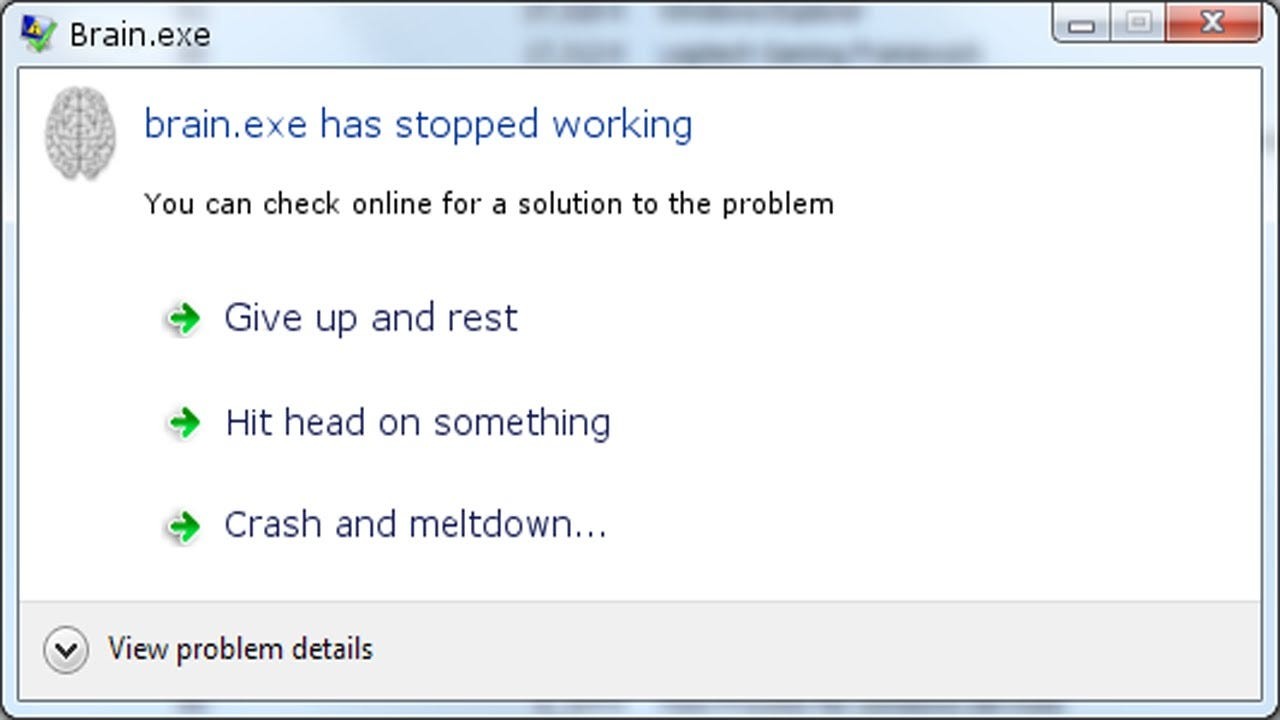Many of us experience moments when our mental clarity falters, and we struggle to focus or generate ideas. This feeling of mental stagnation can be frustrating, leading to self-doubt and inadequacy. This article explores the concept of “Brain.exe stopping responding,” drawing parallels to computer processes, and offers reassurance that these mental hiccups are a normal part of the human experience.

Understanding Mental Gridlock: Why Brain.exe Crashes
Just like a computer, our brains can become overloaded with information and tasks, leading to decreased performance. Factors such as stress, fatigue, and a distracting environment can contribute to this mental gridlock. When our “brain.exe” stops responding, it’s often a sign that we need to address these underlying issues. It’s not a personal failing but a natural consequence of a complex system at work. Think of it as too many applications running simultaneously, consuming valuable processing power and RAM.
Rebooting Your System: Strategies for Mental Recovery
When faced with mental stagnation, it’s important to remember that our brains, unlike computers, don’t have a simple “restart” button. However, there are strategies we can employ to clear the mental cache and improve cognitive function. Taking breaks, engaging in relaxation techniques, and changing our environment can help to reduce mental clutter and allow our brains to process information more efficiently. Just as a computer needs to close unnecessary programs, we need to identify and eliminate mental distractions.
Embracing the Windows Experience: Navigating the Bugs
The analogy of “brain.exe” highlights the inherent imperfections in our cognitive processes. We are not machines designed for constant peak performance. Just like the Windows operating system, known for its occasional glitches, our brains can experience moments of malfunction. It’s important to normalize these experiences and recognize that occasional mental hiccups are part of the human condition. These “bugs” are not indicative of failure but rather a testament to the complexity and adaptability of our minds.
The Power of Patience: Letting Brain.exe Recover
When our mental processes slow down, it’s crucial to practice patience. Forcing productivity during these periods can be counterproductive, leading to further frustration. Instead, allowing ourselves time to rest and recharge can facilitate natural recovery. Just as a computer needs time to complete complex tasks, our brains require time to process information and generate creative solutions. Give your “brain.exe” the time it needs to reload and resume optimal function. Remember, even the buggiest operating system can still run the world.
